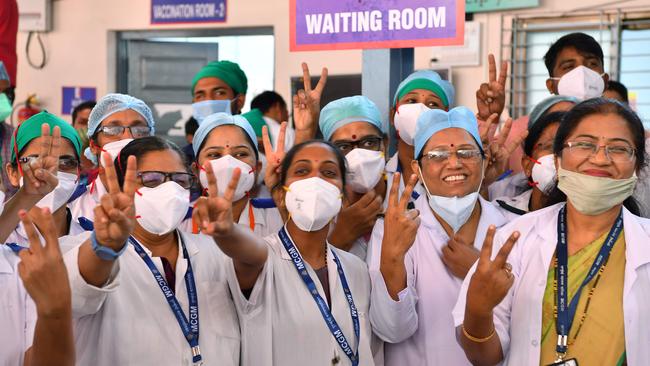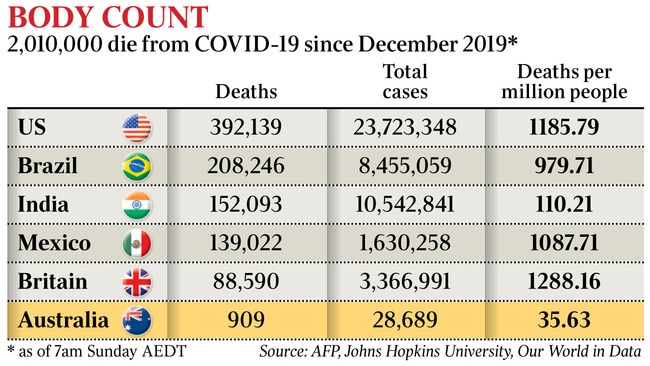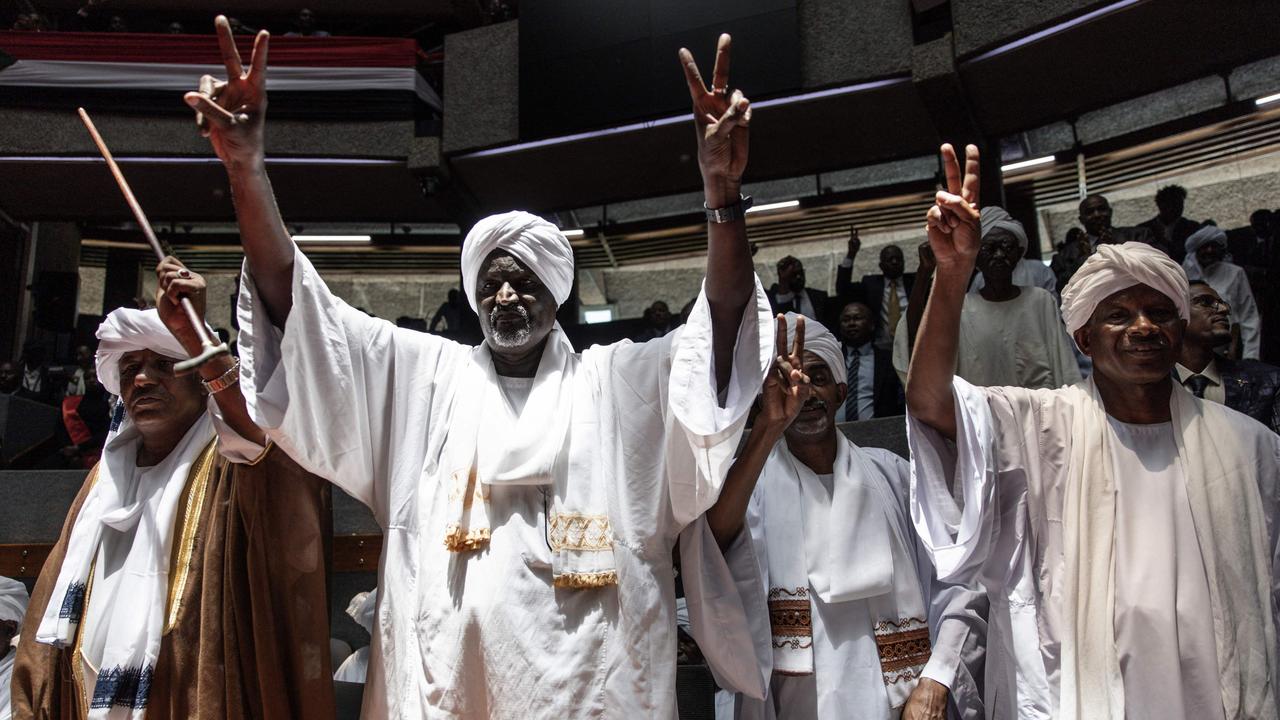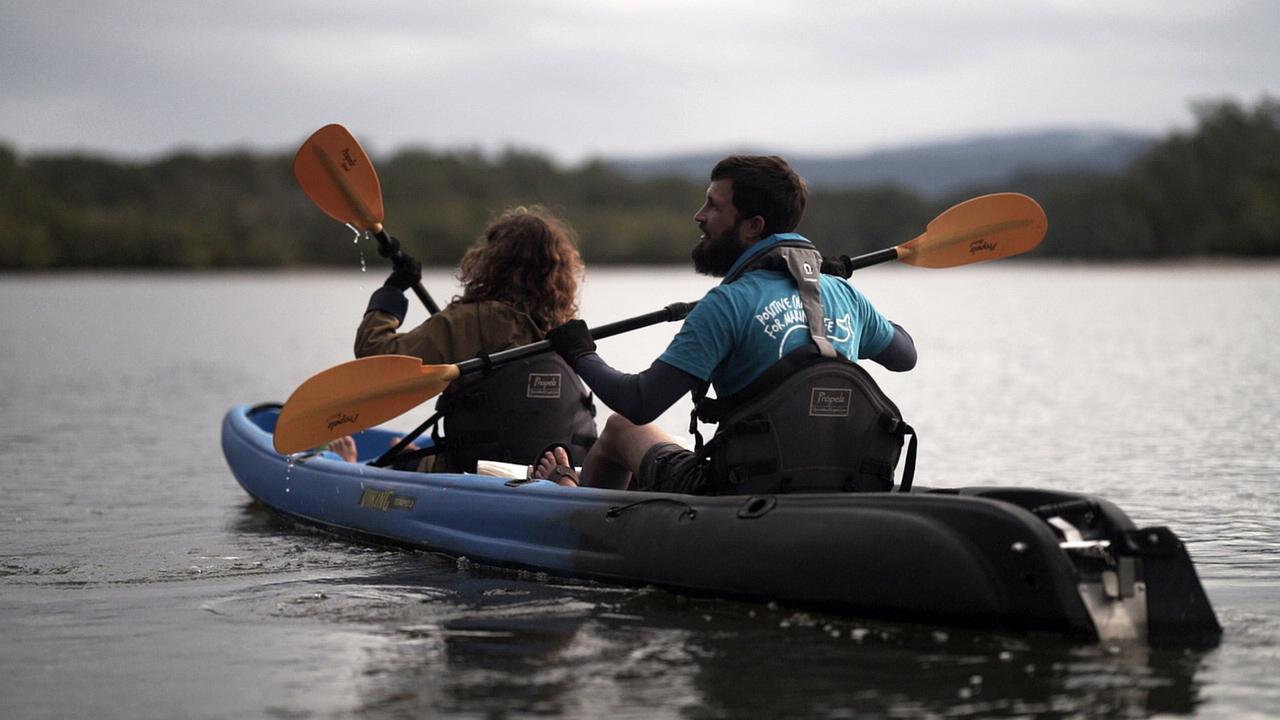India out to vaccinate 300,000 people a day
India has kicked off one of the world’s largest coronavirus vaccination drives.

India has kicked off one of the world’s largest coronavirus vaccination drives, desperately hoping to end a pandemic that has killed more than 150,000 of its people.
India aims to vaccinate about 300 million of its 1.3 billion people by July with frontline workers, people over 50 and those deemed high risk first in line.
On day one about 300,000 people were due to be vaccinated with Covishield, developed by AstraZeneca and made by India’s Serum Institute, or the homegrown Covaxin.
Covaxin is still in clinical trials and recipients on Saturday had to sign a consent form that stated that the “clinical efficacy … is yet to be established”.
But Prime Minister Narendra Modi as he launched the vaccination program urged people to reject “propaganda and rumours” about the home-grown vaccine.
“The world has immense faith in India’s scientists and capacity of vaccine production,” Mr Modi, 70, said in a video message.
Inside a 15,000-bed field hospital in Mumbai, authorities set up 15 vaccination booths and expected to inoculate up to 1000 people on Saturday.
“Back in May, it felt like a losing battle. We were getting 200 cases a day,” said Rajesh C. Dere, 46, the hospital dean. “Today I feel a great sense of satisfaction that we have succeeded.”
The facility’s first recipient was a young female health worker in lab coat and mask. There was applause as she got the jab in her right arm and gave a thumbs-up with her left.
“I have seen people dying,” said health worker Santa Roy, 35, in the eastern city of Kolkata, saying he now saw a “ray of hope”.

New infection rates in India have fallen sharply in recent months. On Friday 175 people died compared with almost 4000 a day earlier in the US. But experts are concerned a new wave might hit, fuelled by a string of recent mass religious festivals.
Authorities are drawing on their experience with India’s massive elections and child immunisation programs for polio and tuberculosis. But in an enormous, impoverished nation with often shoddy transport networks and one of the world’s worst-funded healthcare systems, it is still a daunting undertaking.
Child inoculations are a “much smaller game” and vaccinating against COVID-19 is “deeply challenging”, said Satyajit Rath from the National Institute of Immunology. Both approved vaccines need to be kept refrigerated, and others being developed will need to be stored at ultra-low temperatures — and in a country with scorching summers.
There are also concerns about plans to manage the entire process digitally via India’s own app, CoWIN — of which there are already several fake versions.
And as in other countries, there is scepticism about the vaccine, fuelled by a torrent of hoaxes and baseless rumours online about the virus. For example, multiple Facebook and Twitter posts shared hundreds of times — debunked by AFP Fact Check — claimed no vegetarian had died from COVID.
A recent survey of 18,000 people across India found 69 per cent were in no rush to inoculate.
Anecdotal evidence suggests the approval of Covaxin without data from phase three human trials has further eroded trust among doctors and patients alike.
But with “Thank you Modi” posters on the wall, Chand Wattal, 60, a senior New Delhi doctor who was among the first to be vaccinated — with Covishield — wasn’t worried.
“There is no treatment for coronavirus, it is killing people worldwide,” he said.
“The phase three data (for Covaxin) is not in public domain, that is a concern. But they will release it in two-to-three months, so why waste time?”
AFP


